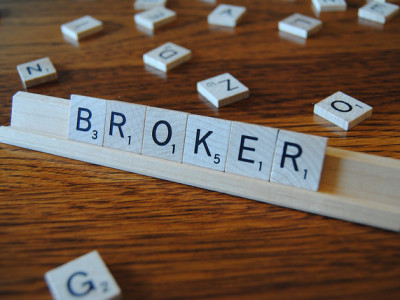Do Forex Brokers Hunt Your Stop Loss? (Part 1)
My opinion on stop loss hunting:
Over the years, there has been much debate as to whether retail Forex brokers ‘hunt’ their clients’ Stop Loss Orders. There has also been a lot of confusion on where I stand on the issue. For some reason, many traders think that I refuse to acknowledge it and for some unknown private gain, deliberately mislead traders into thinking that it doesn’t exist. Perhaps I just like the satisfaction of knowing that I am sending new traders to certain doom…
Of course, all of this is quite ridiculous as there is absolutely nothing to gain from lying about such an issue (unless of course, I owned and controlled all of the retail brokers in the world, which I obviously do not). In fact, the only way that it could be of any kind of advantage to me, is if I were pushing the agenda of a specific broker through these posts, which, again I am clearly not. So, now that I have cleared that up, let’s get onto the subject in question.
Before evaluating whether or not this whole concept is accurate, we need to define what ‘stop hunting’ is or more importantly, what most retail traders believe it is.
The notion of ‘stop hunting’ is widely believed to work as something like this:
A trader opens a retail account with a retail broker and begins trading that account as they see fit in the market. Inevitably, the trades they open include a Stop Loss Order. This means that if the price moves against their position, the broker will automatically close the trade at the price at which the trader has pre-determined as a suitable exit point; thus cutting their losses.
‘Stop hunting’ is when the market comes close to the Stop Loss Order without actually hitting it, but the broker widens the spreads or manipulates the price to make sure that the Stop Loss Order is hit and that the trader takes a loss. Consequently, this means a gain for the broker.
The confusion may have come from the fact that there are other types of ‘stop hunting’ (which we will look at in the next post), but when I say that it ‘doesn’t exist’, I am solely talking about the definition above.
So why do I refute the notion that brokers are hunting everyone’s Stop Losses?
First Reason
I’m assuming that you are intelligent and wise enough to be trading through a regulated broker in your home country or in a country that you consider to be first-world and secure. There are literally hundreds of these so there is absolutely no reason to trade at an unregulated ‘bucket shop’ based on some foreign island you have never heard of.
Second Reason
If this is the case then these brokers almost always no longer have dealing desks and in fact, plug you straight through to the market (the days of ‘fixed spreads’ are long gone for the most part). Even if they do offer an artificial trading environment, the work it would take to monitor every single client’s account and ‘hunt’ each individual Stop Loss on each individual trade, is just not worth the resources and effort. This is particularly true when you think that the average retail trader is trading single or possibly double standard lots at best. In other words, most ‘hunted stops’ are only worth a couple of hundred dollars at the most!
Third reason – there is one piece of logic that sums this notion up better than all others:
If you are a bad trader then you will blow your account up anyway, without the need for the broker to go to all the trouble of hunting your stops. Sure, it may take a couple of months, but eventually your account will void on its own, and they will make their money just the same.
If you are an excellent trader who is profitable in the market, every time you take a trade, the broker gets a commission either directly or by adding a bit onto your spread. This signifies, therefore, that the more you trade, the more they earn, and this gets more infinite as your account increases and position size grows. In other words, they get far more money over time from the good traders than they do from the bad ones. They receive money from the bad ones anyway, due to over- leveraging and over -trading.
Frankly, in the best interest of broker is not to interfere and let every trader go their own course; because after all, they will make profit either way.
In the next post we will look at another form of ‘stop hunting’ and discover who exactly is responsible for this type of activity.
The post Do Forex Brokers Hunt Your Stop Loss? (Part 1) appeared first on Jarratt Davis.










